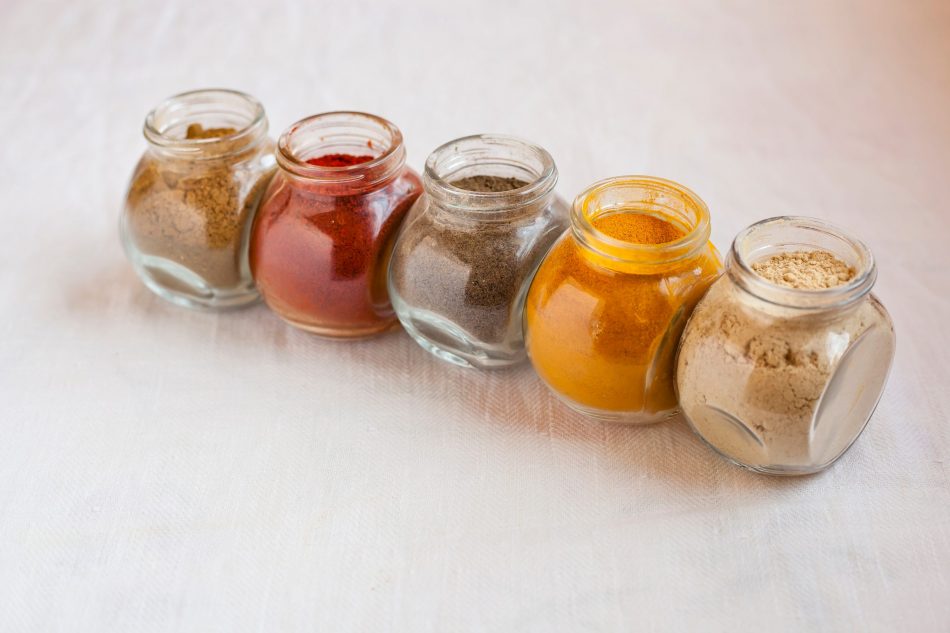Turmeric tends to get all the attention when it comes to anti-inflammatory spices, but don’t overlook these five other spices that functional food expert Kanchan Koya Ph.D. touts as her favorites for fighting off inflammation.
Cayenne
Cayenne is a great choice for spicy food lovers, as it will certainly add a bit of bite to your dish along with anti-inflammatory power. This hot spice is also a great source of phytonutrients, as well as potassium and magnesium.
Black pepper
If you want to max out the benefits of turmeric, then black pepper is key. As nutritional psychiatrist Uma Naidoo, M.D., tells mindbodygreen, black pepper “enhances the absorption of curcumin 20-fold,” which is turmeric’s active compound. That said, the active ingredient in black pepper, piperine, has also been linked to fighting inflammation, so grind that fresh black pepper onto your dish for some extra anti-inflammation action.
Sumac
Sumac may not have a deep-rooted history in the West, however, it’s been used in Eastern cultures for centuries. This may be because it’s a rich source of phytonutrients as well as antioxidant compounds, both of which have anti-inflammatory properties.
Nutmeg
Nutmeg brings thoughts of winter holidays cozying up next to the fireplace, but you should really be using it year-round for its anti-inflammatory compounds called monoterpenes, specifically sabinene, terpineol, and pinene.
Cinnamon
Cinnamon is also widely known for its powerful anti-inflammatory properties, but according to Koya, you should be careful about which kind of cinnamon you use, especially if you consume cinnamon daily. Ceylon cinnamon has a lower concentration of coumarin, which could be detrimental to your liver in large quantities, which makes it safer than Cassia cinnamon for everyday use.











